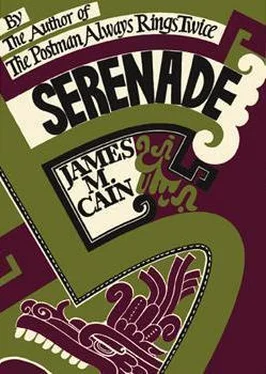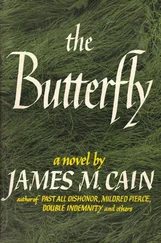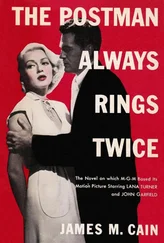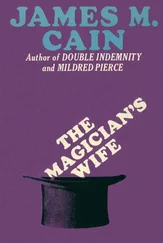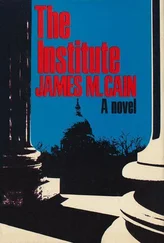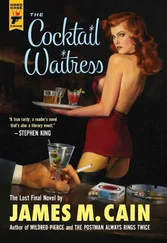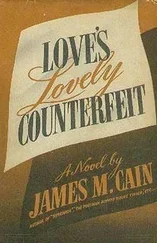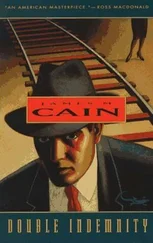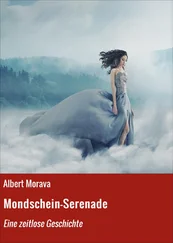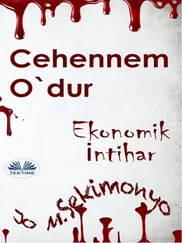It was the way they were hurrying along, though, that woke me up to what it looked like outside. The heat and dust were enough to strangle you, but the clouds were hanging lower all the time, and over the tops of the ridges smoky scuds were slipping past, and it didn’t look good. After a long time we passed some huts, by twos and threes, huddled together. We kept on, and then we came to a couple more huts, but only one of them seemed to have anybody in it. She reached over and banged on the horn and jumped out, and ran up to the door, and all of a sudden there was Mamma, and right behind her, Papa. Mamma was about the color of a copper pot, all dressed up in a pink cotton dress and no shoes, to go to Acapulco. Papa was a little darker. He was a nice, rich mahogany after it’s had about fifteen coats of dark polish. He came out in his white pajama suit, with the pants rolled up to his bare knees, and took off his big straw hat and shook hands. I shook hands. I wondered if there had been a white iceman in the family. Then I pulled up the brake and got out.
Well, I said she ran up to the door, but that wasn’t quite right. There wasn’t any door. Maybe you never saw an Indian hut, so I better tell you what it looks like. You can start with the colored shanties down near the railroad track in New Orleans, and then, when you’ve got them clearly in mind, you can imagine they’re the Waldorf-Astoria Hotel, and that the Mexican hut is a shanty standing beside it. There’s no walls, or roofs, or anything like you’re used to seeing. There’s four sides made of sticks, stuck down in the ground and wattled together with twigs, about as high as a man’s head. In the middle of the front side is a break, and that’s the door. The chinks between the twigs are filled up a little bit with mud. Just plain mud, smeared on there and most of it falling off. And on top is a thatch of grass, or palmetto, or whatever grows up on the hill, and that’s all. There’s no windows, no floor, no furniture, no pictures of the Grand Canyon hanging on the walls, no hay-grain-and-feed calendars back of the clock, with a portrait of a cowgirl on top of a horse. They’ve got no need for calendars, because in the first place they couldn’t figure out what the writing was for, and in the second place they don’t care what day it is. And they’ve got no need for a clock, because they don’t care what time it is. All I’m trying to say is, there’s nothing in there but a dirt floor, and the mats they sleep on, and down near the door, the fire where they do their cooking.
So that was where she came from, and she ran in there, barefooted like they were, and began to laugh and talk, and pat a dog that showed up in a minute, and act like any other girl that’s come home after a trip to the city. It went on quite a while, but the clouds weren’t hanging any higher, and I began to get nervous. “Listen, this is all very well, but how about the viveres?”
“Yes, yes. Mamma have buy very good estoff.”
“Fine, but let’s get it aboard.”
It seemed to be stored in the other hut, the one that nobody was living in. Papa ducked in there and began to carry out iron plates for cooking tortillas, machetes, pots, and jars and such stuff. One or two of them were copper, but most of them were pottery, and Mexican pottery means the worst pottery in the world. Then Mamma showed up with baskets of black beans, rice, ground corn, and eggs. I stowed the stuff in the rumble seat, shoving the pots in first. But pretty soon it was chock up to the top, and, when I came to the baskets I had to lash them to the side with some twine that they had so they rode the running board. Some of the stuff, like the charcoal, wasn’t even in baskets. It was done up in bundles. I lashed that too. The eggs I finally found a place for in back, on top of her hatbox. Each egg was wrapped in cornhusk, and I figured they would ride all right there and not break.
Then Papa came grinning out with a bundle, bigger than he was, of brand-new mats, all rolled up and tied. I couldn’t figure out why they were so nuts about mats, but later I found out. He mussed up my whole rumble seat by dragging out the mat she had brought, unrolling his pile, rolling out her mat with the others and tying them up again. Then he lashed them to the side on top of the charcoal. I stood on the fender, grabbed the top and rocked the car. The twine broke and the mats fell out in the dirt. He laughed over that. They got a funny sense of humor. Then he got a wise look on his face, like he knew how to fix it, and went out back of the hut. When he showed again he was leading a burro, all saddled up with a rack. He opened the mats again, split them into two piles and rolled them separate. Then he lashed them to the burro, one pile on each side. Then he led the burro to the car and tied him to the rear bumper.
I untied the burro, took the mats off him, and rolled them into one pile again. I lifted them. They weren’t so heavy. I hoisted them on to the top so one end was on the top, the other on the rumble seat, where it was open, and lashed them on to the top brace. I went in the hut. Juan was tying up one more basket, the old lady squatting on the stove bricks, smoking a cigar. She jumped up, ran out the door and around back, and came back with a bone. Juana had to untie the basket again, and in it was the dog. The old lady dropped the bone in, Juana put the top on and tied it up.
I went out, took the key out of my pocket, got in, and started the car. I had to back up to turn around, and all three of them started to scream and yell. It wasn’t Spanish. I think it was pure Aztec. But you could get the drift. I was stealing the car, the viveres , everything they had. Up to then I was nothing but a guy going nuts, and trying to get started in time to get there if we ever were going to get there. But the way they acted gave me an idea. I put her in first, hauled out of there, and kept on going.
Juana was right after me, screaming at the top of her voice, and jumped on the running board. “You estop! You steal auto! You steal viveres . You estop! You estop now!”
I did like hell stop. I stayed in first, so she wouldn’t get shaken off, but I kept on over the hill, sounding like a load of tin cans with all that stuff back there, until Mamma and Papa were todo out of sight. Then I threw out and pulled up the brake.
“Listen, Juana. I’m not stealing your car. I’m not stealing anything — though why the hell you couldn’t have bought all this stuff in Acapulco where you could get it cheap, instead of loading up here with it, that’s something I don’t quite understand. But get this: Mamma, and Papa and the burro, and that dog — they’re not coming.”
“Mamma, she cook, she—”
“Not tonight she doesn’t. Tomorrow maybe we’ll come back and get her, though I doubt it. Tonight I’m off, right now. I’m on my way. Now if you want to come—”
“So, you steal my car, yes.”
“Let’s say borrow it. Now make up your mind.”
I opened the door. She got in. I switched on the lights and we started.
By that time I would say it was about seven o’clock. It was dark from the clouds, but it still wasn’t night. There was a place down the line called Tierra Colorado that we might make before the storm broke, if I could ever get back to the main road. I had never been there, but it looked like there would be some kind of a hotel, or anyway cover for the car, with all that stuff in it. I began to force. I had to go up the hills in first, but coming down I’d let her go, with just the motor holding her. It was rough, but the clock said 20, which was pretty good. Well, you take a chance on a road like that, you’re headed for a fall. All of a sudden there was a crash and a jerk, and we stopped. I pedaled the throttle. The motor was dead. I pulled the starter, and she went. We had just hit a rock, and stalled. But after that I had to go slower.
Читать дальше
